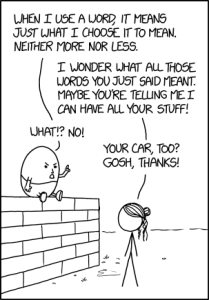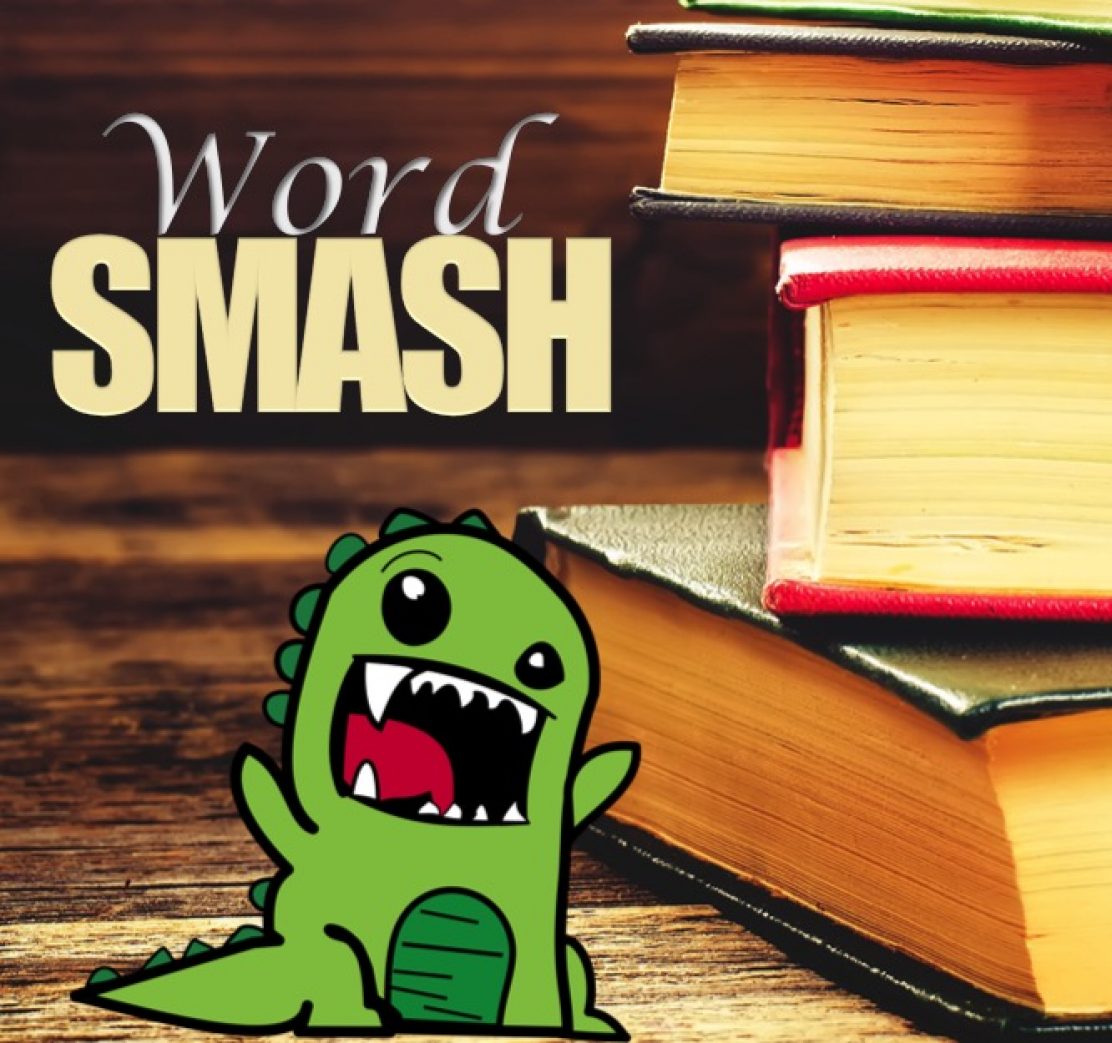
I think it’s astonishing that the universe is contained in eight letters. Or that love is contained in four. It’s one of the things I adore most about language. We can build entire worlds with the correct assembly of lines, dashes, and dots. We can bathe in the deep black of the galaxy with stars whizzing past. Or fall into a pile of red-dusted leaves in the autumns of our childhoods. I can make a whale orbit the sun or a blade of grass tickle your ankle as you walk towards the beach. Even just a single word can pull you into a litany of half-remembered moments–the breeze of the ocean, and light of the sun through the trees, the image of Saturn’s rings from a book.
But words are also tricksters. They mold themselves to fit sentences and preconceived notions, creating misunderstandings and stripping nuance from even the best-formed phrases.
By some unknowable force, I find myself with an unusually large amount of time to contemplate the meaning of words. More so than most adult humans do. Last week, I spent an hour considering all of the potential synonyms of the word “connection” to find the right blend of relationships and electricity. At work, I frame complicated, technical gobbledygook in stories with villains and heroes. And in life, I translate my fragmented trains of thought into (hopefully) well-structured paragraphs. So, it seems perfectly reasonable that words are a pathway for me to understand the world.
If we can’t find meaning in words, where can we find it?
Some words are weightier than others. Words that should have a simple definition. Words we know without having to define them. These words are among the fundamental building blocks of the human condition: love, trust, success, happiness. These are words that touch us from the day we are born–and yet somehow after 28 years, I’m only now figuring out what they mean.
I also find myself in those odd years between unencumbered youthful and experienced self-possession. Or more plainly, I find myself on the cusp of confident adulthood. The adulthood where choices are intentional and enjoyable, rather than flippant and inevitable. There is something deep in me that craves certainty–of future, of belief, or self. But equally, there is something that still craves adventure and possibility. People expect me to know what I want from life and where I am going. But knowing those answers terrifies me – in part because I am still defining those words: love, trust, success, happiness. How can I have those things if I don’t even know what they are?
Definitions are not set in stone. Even the dictionary evolves with time. We record words as they are used, as they change, as they fulfill new purposes. Younger me was fierce with the knowledge of love. Of trust. I believed the definitions of success and happiness that were taught to me. But now that I have to use these words to guide me, I realize that perhaps I never knew them at all.
 Love.
Love.
My sister once told me that love doesn’t fall into your lap – it requires effort and intention to seek it out. I didn’t believe her for a second. I wanted the fairy tale, the handsome man running up the stairs holding my glass slipper. We would fall into each other and never let go. The perfect match that required nothing more than a kiss at midnight. My great love would have a great story, and the story would be proof of our inevitability. We’d ride off into the sunset and be fabulously happy forever and ever. Til death does us part and all that.
Which, of course, is bullshit.
It is said that love is an unconditional commitment to an imperfect person. Love isn’t something you fall into. It’s something you decide every second of every day. It happens in the uneventful moments when nothing is pulling or pushing. It comes in tidal waves and faint breezes. And it is challenged by the subtle passing of time and the tempestuous blasts of insecurities. Sure, a great story never hurt anyone – but the story must be more than glass slippers and ballgowns. Love requires endurance. Forgiveness. Growth. It requires being challenged and being brave. And it can never exist in isolation. Romantic love builds on platonic love and familial love. A person needs an entire network of reliance and generosity – one that they choose and renew each and every day.
Trust.
My definition of trust has always been rooted in my understanding of love. Trust meant being faithful. Being honest. Being completely comfortable within the power of another. Trust was reliance without reason for doubt.
But I’m learning how narrow my view was.
Trust means believing someone–not just taking them at their word, but deeply, fully believing them. And believing in them. I often give too much of myself away because I am afraid to trust. If I make myself indispensable, then the people I love and the people I need won’t go away. Trust means I don’t have to prove my worth. It means that I’m beautiful when someone tells me that. It means I can ask someone to help me carry my burdens. Or let them carry their own burdens without my need to feel guilty for not helping. Trust is the recognition of ability in another person. Their ability to love, to care, to survive, and to overcome. Trust is about really seeing someone and giving them the room to be their full selves.
Success.
I’m not sure I can tell you what success means. But I am learning what success is not: it’s not achieving a goal. It’s not getting a new job or more money. Success seems so easy to measure with degrees and accolades and promotions. But it’s not any of those things. Perhaps success is the fulfillment of purpose. And that purpose changes with each one of us. One person may find success in the accomplishments and contributions they give through their work. Another may find success in their family. Or their hobby. Or their internal self. My success has always been driven by checkboxes and expectations: grades, jobs, buying a house, finding a partner. But as my checklist gets shorter and shorter, it becomes harder to know how to feel successful. The things that I love – writing, reading, traveling – have never been within my framework of success. They have been worthy pursuits, but never a way to achieve success. But if they bring me fulfillment – maybe they’ve made me successful all along?
Happiness.
Happiness will forever be nebulous – some unknown mixture of all of this. Love and security and success, all bundled together into one pleasant feeling. What I have learned is about the distinction between happiness and joy. Joy always seemed like a higher degree of happiness, that extra over-the-top glee that might even cause giggling. But joy is fleeting. It fills the room but quickly runs out, leaving a residue behind. Happiness is that residue. The lingering, quiet version of joy that isn’t electric. It’s what we cultivate in our lives slowly, trying out best to make the choices that lead us to those moments of pure euphoria.
Neither joy nor happiness is forever. We can’t always be happy – or so I’ve heard it said a million times. And that’s true. We can’t always be happy – but why can’t we be happy by default? Why can’t we make more of those choices that bring small bits of joy more often? The pursuit of happiness isn’t a guarantee. Instead, it’s a mindset and a neverending well of hope.
I don’t pretend to know what I’m talking about really, with all this talk of love and happiness and success. I still squirm when I imagine myself a year from now, or two, or five. Sometimes I feel like I don’t have time to sit and contemplate the meaning of these things, or how they motivate me. Or how they propel me from here. I feel like I have to leap forward and already know where I want to land. But really what I’ve learned is that I get to decide what these things mean. And I get to decide where it is they take me. At least for the most part. How we define our lives–and our words–is where we find our meaning.

Leap…..and the net will appear.
LikeLike